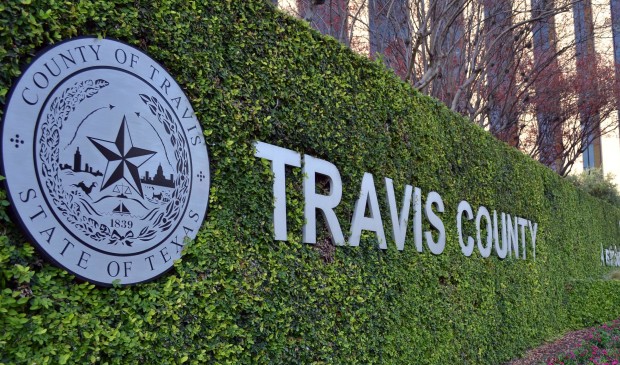Travis County turns down partnership with Austin to address homelessness
Monday, February 5, 2024 by
Nick Erichson On Tuesday, the Travis County Commissioners Court rejected a proposal to form an interlocal agreement with the city of Austin.
The agreement would have put $400,000 toward a $2 million strategic analysis of local efforts to address homelessness. Commissioners chiefly objected to the city’s employment of consulting powerhouse McKinsey & Company as the project’s third-party contractor. The commissioners voiced dissatisfaction with their limited role in the planning process and the absence of subcontracts with community organizations in the McKinsey-managed plan.
In the end, the court unanimously passed a motion directing Travis County staff to conduct their own collaborative review of homelessness services in the county.
In January, City Council approved a proposal for a “comprehensive review” of Austin-area homelessness-related efforts, delineated broadly as public sector strategies, programs, services and contracts. The proposal planned for collaboration with Travis County, Central Health, Integral Care and the University of Texas at Austin Dell Medical School.
According to the contract, each partner in the project would shoulder some of the cost of the work performed; the city planned to allocate $1 million of funds drawn from the American Rescue Plan Act toward the project, anticipating reimbursements of $400,000 each from Travis County and Central Health and $200,000 from Dell Medical School via interlocal agreements.
The impact of losing nearly one-quarter of the project’s anticipated budget – and one of its central partners – remains unclear.
Before Tuesday’s vote, Yasmine Smith, with the Austin Area Urban League, made comment criticizing the expense of the project and reprimanding McKinsey & Company’s record of harm.
“We really feel like the McKinsey firm, specifically with their history of very harmful impacts to communities, is not the right partner to bring in in consideration for such a high-magnitude leading of cultural competency survey and analysis,” Smith said.
She highlighted concerns with the project’s costs given its lack of subcontracts to community organizations and contended that a “litany” of existing surveys can inform the provision of funds to homeless services directly. “I agree with the comments that have been made by Yasmine,” District 2 Commissioner Brigid Shea said during the discussion. “I don’t think there’s an appetite for joining this (interlocal agreement) with this consultant.”
As the nation’s largest management consulting firm, McKinsey & Company retains a vast portfolio of clients ranging from Microsoft to the Pentagon to small municipal districts and startup companies. The firm has attracted scrutiny for its record of consulting with clients such as U.S. Immigration and Customs Enforcement, Russian state-owned weapon companies and pharmaceutical giants such as Purdue Pharma, including strategizing a sales push for OxyContin (the firm later paid a settlement of $573 million for its role in promoting the opioid epidemic, with no admission of wrongdoing).
This year’s survey would not be McKinsey’s first visit to the city. In 2023, the firm performed a “pro bono” evaluation of the Development Services Department’s site plan review process and was subsequently awarded a $2.5 million contract to implement its strategic plan. As with last year’s project, the city’s homelessness endeavor was not put out for public competitive bid, though it was “informally” considered against one other applicant.
After voicing her own reservations about collaboration with McKinsey & Company, Shea reaffirmed her commitment to improving homeless services in concert with governmental partners and proposed an alternative motion to establish a parallel review project in the county’s hands.
Shea was not the only commissioner soured by the city’s choice of contractor.
Commissioners Ann Howard and Jeff Travillion expressed a sense of duty to reject the proposal based on McKinsey’s involvement and, visibly moved, expressed their remorse that action to serve their constituents facing homelessness could not begin under the auspices of the city project “that day.”
After a charged discussion, the court unanimously voted to direct Travis County staff to conduct their own review of county homelessness-related “policies, strategies, programs and contracts” and develop an actionable framework in collaboration with the city of Austin, Central Health, Integral Care and other potential partners.
Travillion emphasized the importance of equitable collaboration in the nascent project, saying, “It is important that we work together as partners, not subordinates,” while Howard emphasized the importance of working with the project’s proposed partners just as they would have in the city’s proposal.
The county aims to convene work sessions and collaborative discussions by June of this year and did not specify target dates for county staff’s review in the intervening period.
The Austin Monitor’s work is made possible by donations from the community. Though our reporting covers donors from time to time, we are careful to keep business and editorial efforts separate while maintaining transparency. A complete list of donors is available here, and our code of ethics is explained here.
You're a community leader
And we’re honored you look to us for serious, in-depth news. You know a strong community needs local and dedicated watchdog reporting. We’re here for you and that won’t change. Now will you take the powerful next step and support our nonprofit news organization?







